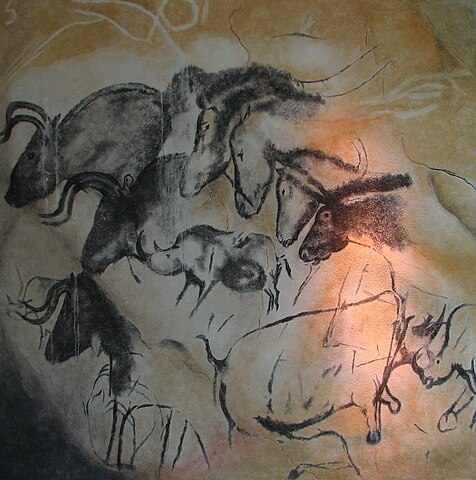The usual way to remember something is to create a record of it.
This can be done through various media, ranging from text to pictures and videos.
The act of recording our thoughts and experiences helps us retrieve those memories later.
It also acts as a filter, shaping what we are more likely to remember. Reviewing our notes or a family album further solidifies these memories.
Our lives are a collection of past experiences and future projections. They contribute to how we have arrived at the present moment, who we are, and who we are becoming.
Events worth remembering have been captured in images since ancient times.
Some engravings — perhaps the oldest visual form of storying information — are estimated to be 500,000 years old. The earliest cave paintings date back over 50,000 years. Written records came much later, with Egyptian hieroglyphs and Sumerian cuneiform being among the first.

Today, videos are a superior form of content.
The iPhone has given us the ability to take snapshots and videos whenever we want — and people love doing so.
Apple and others have placed extreme emphasis on improving smartphone cameras over the years. For many, this has been the reason to upgrade to newer models. Apple’s positioning is clear too. Features like the automatic photo collection in the Photos app emphasize this trend, with the feature even being named Memories.
But where do all these memories go?
The sheer amount of pictures and videos is too large to store on our devices, so we rely on cloud services. It makes our lives easy. Our favorite moments are always available to us across different devices.
This way, we have traded the ownership of our data for convenience.
What comes next?
We are witnessing the early stages of the metaverse.
The future is called Apple Vision Pro.
We can now record memorable moments and replay them in virtual reality, making them alive again.
We can relive them infinite times.
This technology will gradually be available to masses like AirPods or Apple Watch, which brings exciting possibilities but also raises concerning questions.
How will our psyche respond?
Could it stimulate an unhealthy longing for the past?
Remembering beautiful moments can be up-lifting.
Being stuck in the past can be self-destructive.
Further adoption of VR will likely make us even more reliant on technology. Imagine if all your journals were no longer in your possession, but you had to borrow them from a library every time you wanted to revisit them. We are losing control over our memories.
An alternative for some may be the permaweb, a decentralized blockchain technology – Arweave – that stores data permanently. Simply put, it is like Bitcoin for data.
Having so much data on people that are being already utilized seems like the best way to not only serve everybody better than ever but also have unprecedented power. The role of the big tech is undeniably growing, with possibly worrying effects that are difficult to foresee.
The uncertainty surrounding future developments is what makes it worrying.
